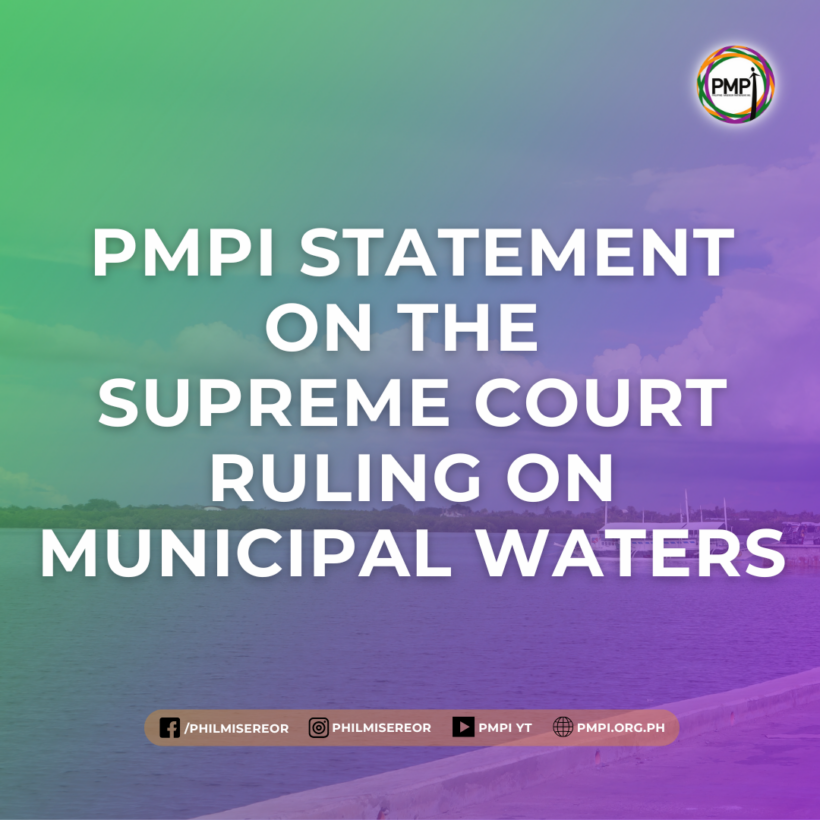|
We, the 230 members of the Philippine-Misereor Partnership Inc. (PMPI), express profound concern regarding the Supreme Court’s First Division’s affirmation of the Malabon Regional Trial Court’s decision declaring Sections 4 (58), 16, and 18 of the Philippine Fisheries Code (Republic Act No. 8550, as amended by RA 10654) unconstitutional. This decision would allow large-scale commercial fishers to operate within municipal waters, further threatening the livelihoods of small-scale fishers who depend on these waters for their daily sustenance. We are alarmed and greatly disappointed that this ruling on Section 16 undermines the devolved powers of local government units (LGUs) under the Local Government Code of 1991. By asserting that only the national government has the authority to regulate the use of natural resources, including municipal waters, the court has stripped LGUs of a critical function designed to empower local governance and community-based resource management. The invalidation of Sections 4 and 18 is equally distressing. The previous prohibition on commercial fishing in municipal waters less than 7 fathoms (12.8 meters) deep was a vital safeguard for the 15-kilometer municipal waters designated for small-scale fisherfolk and their cooperatives or organizations. This decision opens these areas to commercial fishing, intensifying the challenges faced by approximately 2.3 million small-scale fishers who already endure food insecurity, habitat degradation, climate change, overfishing, and limited access to government services. These marginalized communities, which are among the most disadvantaged sectors as reported by the Philippine Statistics Authority in 2021, now face an even graver threat to their livelihoods and welfare. This ruling also contradicts the spirit of Article XII, Section 2 of the Philippine Constitution, which provides that: “The Congress may, by law, allow small-scale utilization of natural resources by Filipino citizens, as well as cooperative fish farming, with priority to subsistence fishermen and fish workers in rivers, lakes, bays, and lagoons.” Ironically, the Supreme Court once upheld the right of the State to regulate the use of natural resources by law. In Tano v. Socrates, G.R. No. 110249 (1997), the Court upheld local ordinances restricting certain fishing activities, emphasizing that these measures were valid exercises of the State’s duty to conserve marine resources for present and future generations. This duty was rightly upheld by Congress when it limited municipal waters to subsistence fishermen through the Fisheries Code. The preferential rights of small-scale fishers enshrined in the Constitution must be respected and upheld to ensure equitable access and sustainable management of our natural resources. Our Call to Action
The livelihoods of our fisherfolk—the front liners in ensuring food security for the nation—must be prioritized. PMPI remains steadfast in its commitment to upholding the rights of fisherfolk and the rights of nature. We urge all sectors to unite in protecting the welfare of small-scale fishers, conserving marine resources, and advocating for policies that ensure sustainable and equitable use of our natural resources. Together, let us safeguard the lives and livelihoods of our coastal communities and protect the environment for future generations. |
PMPI Statement on Supreme Court Ruling on Municipal Waters
- Manila, Philippines -










